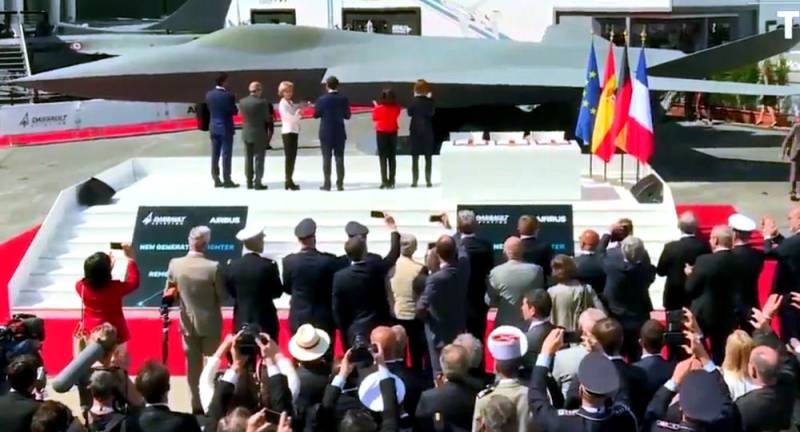An agreement has been reached by the air forces of Germany, Spain and France regarding performance standards for a collection of 10 possible system architectures under the Next-Generation Weapon System (NGWS), according to a recent military statement from Berlin.
Defense News revealed Tuesday that progress had been made earlier this month in Germany, Spain and France’s trinational effort to develop a next-generation fighter jet by 2040.
Citing a statement from the German Bundeswehr, the outlet noted that the aforementioned nations have agreed on a set of performance benchmarks to help select desired features from a collection of what is currently 10 possible system architectures under the NGWS.
The NGWS comes as a central component to the Future Combat Air System (FCAS), which was unveiled at the Paris Air Show in June 2019.
VIDEO: A full-scale model of the Future Combat Air System (#FCAS) jet is unveiled at the #ParisAirShow in front of the defence ministers of France, Germany and Spain and French President Emmanuel Macron. #ParisAirShow2019 pic.twitter.com/x3XRWGmfMV
— AFP news agency (@AFP) June 17, 2019
According to the project description, the FCAS is envisioned to be accompanied by a fleet of “remote carrier” attack and surveillance drones interlinked by an artificial intelligence-powered “combat cloud.”
“The 10 different system architectures for NGWS currently in the mix lean in different directions when it comes to armaments, maneuverability and range of the main jet and its companion drones, for example,” the Bundesweher statement read, according to a translation by DefenseWorld.net.
The three air force chiefs - Germany’s Lt. Gen. Ingo Gerhartz, France’s Gen. Philippe Lavigne and Spain’s Lt. Gen Javier Fernandez - have agreed on a “Common Understanding Connectivity,” which is a framework for connecting each nation’s systems to the forthcoming FCAS.
It would appear as if the program is still on track to begin testing an FCAS prototype by 2026 - the original target year.
Sputnik reported in December 2019 that it is possible that the UK may also get involved in the next-gen effort as it proceeds to develop its Tempest - a twin-engine, sixth-generation fighter jet concept that has been touted as a possible replacement for US-made F-35 fighter jets in Europe.
According to DefenseNews, Germany is leery of France having a strong influence over the program. At the same time, Berlin is currently leading the Main Ground Combat System program - a bilateral effort between the two nations to develop a common tank.






